The deaths of four U.S. soldiers in a remote region of Niger in October 2017 suddenly brought the Sahel region of West Africa to the attention of the American public and lawmakers, many of whom were previously unaware of there being any American military engagement in the region. The soldiers and their Nigerien counterparts were reportedly ambushed by fighters loyal to the Islamic State in the Greater Sahara (ISGS), one of the multiple extremist groups operating in the region’s large and sparsely populated desert areas. While the October attack may have catapulted American counterterrorism strategy in the Sahel into the media spotlight, the region is no stranger to regional and international military operations aiming to combat the growth of violent extremism. The Sahel region is now home to a growing alphabet soup of regional and international peacekeeping and counterterrorism operations, from the French-led Operation Barkhane to the G5 Sahel Joint Force and the newly-formed Multinational Joint Task Force to combat Boko Haram.
Category Archives: Fragile States Index Analysis
Stability in the Sahel Region Will Require More Than Just Counter-Terrorism
- Thursday, 03 May 2018 13:00
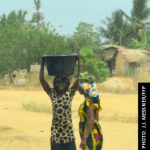
It’s (Not) the Economy, Stupid
- Monday, 30 April 2018 14:32

It was a rough year for the United States in 2017. It was the country’s worst year for hurricanes – Irma, Harvey, and Maria caused hundreds of billions of dollars’ worth of damage in the Gulf Coast. It was the worst year for wildfires – over a million acres burned in California alone. It was the worst year for mass shootings – hundreds were killed at concerts and churches and schools. It was a pretty bad year for political polarization too, marked by politically charged investigations into Russian external intervention in the democratic process and a series of political scandals involving alleged corruption, criminality, and misconduct at the highest levels of government. Further, mass protests over issues like immigration policy and women’s rights took on greater energy than ever before. But not everything was bad. The economy continued to improve through 2017, with unemployment continuing to drop since it peaked at 10% in 2009 to a low of 4.1%, the best rate since 2000. The stock market also did well throughout 2017, continuing its rise since the crash of 2008-2009.
Scraping the Barrel: Oil-Dependent Venezuela in Free-Fall
- Friday, 27 April 2018 15:53

When the 14-year rule of the populist President Hugo Chávez came to an end upon his death in 2013, Venezuela was already well down the path to instability. Chávez’s death made way for his handpicked successor Nicolás Maduro who, in stark contrast to Chávez’s cult of personality, many Venezuelans have come to fear and loathe.
The Venezuelan economy – which remains heavily reliant on oil exports – was hit sharply by the drop in global crude oil prices in 2013. Without the same capital to line the public coffers for popular social programs, this exposed the vulnerabilities in the Chávez-era economic policies and set the country on a path towards increased unemployment, poverty and inflation. More focused on consolidating executive power than meaningful reform, President Maduro has pushed Venezuela into a dangerously precarious position – from rampant inflation fueled by food and medical shortages, to increased violence and criminal impunity on the streets.
Fragile States Index 2018 – Annual Report
- Tuesday, 24 April 2018 02:34
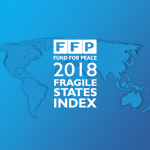
The Fragile States Index, produced by The Fund for Peace, is a critical tool in highlighting not only the normal pressures that all states experience, but also in identifying when those pressures are pushing a state towards the brink of failure. By highlighting pertinent issues in weak and failing states, The Fragile States Index—and the social science framework and software application upon which it is built—makes political risk assessment and early warning of conflict accessible to policy-makers and the public at large.
The Authoritarian’s Playbook: Central Europe’s Slide Toward Illiberalism
- Monday, 23 April 2018 21:42
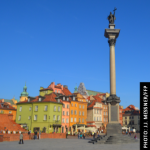
At the beginning of the 21st century, Hungary and Poland were frequently lauded as two of the most successful examples of democratic transitions, emerging from the shadow of communist dictatorships and joining the Euro-Atlantic community through membership in organizations such as NATO and the European Union.[1] Today the two countries are again often mentioned together, but now as vanguards of rising illiberal populism and democratic deterioration. The similar trajectories of the two countries is reflected in the trend of several of the Fragile States Index’s (FSI) component indicators, most notably Group Grievance and Human Rights and Rule of Law.
Resilience Drives a Remarkable Bounce Back for Mexico
- Monday, 23 April 2018 20:27
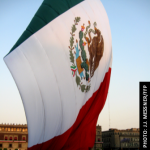
In the previous edition of the Fragile States Index (FSI), Mexico was the most worsened country — a decline in Mexico’s economy, the deteriorating status of refugees, and prevalent political corruption had pushed the country to the 88th position on the FSI in 2017, its worst ranking in over a decade. Indeed, Fund for Peace covered Mexico’s rapid decline in an article entitled, “So Far from God, So Close to the United States: Mexico Most-Worsened in 2017.”
However, in a surprising twist, in 2018 Mexico has recovered to become FSI’s sixth-most improved country overall, showing moderate improvements across nearly every indicator. This dramatic shift is largely attributable to the country’s resilience in the face of worsening U.S.-Mexican relations and the benefits reaped from overall improvements in its southern neighbors in Central America. In the face of very low expectations for its success in 2017, Mexico demonstrated continued economic strength and resilience.
The Gambia Demonstrates the Potential of Regional Action
- Monday, 23 April 2018 20:20
The tiny West African nation of The Gambia, a tropical country famed for its beautiful beaches, stunning vistas, and warm hospitality, has had a turbulent few years. Ruled for over two decades by President Yahya Jammeh, The Gambia experienced a progressive slide into authoritarianism from 1994 until late 2016, when a political and military intervention spearheaded by the Economic Community of West African States (ECOWAS) succeeded in forcing Jammeh’s resignation.
During Jammeh’s 22 years in power, The Gambia experienced a sharp curtailing of basic human rights and freedoms, as well as a crackdown on independent journalism. Under Jammeh’s regime, human rights activists in the country were considered as “saboteurs,” and their offenses were punishable by death. In addition, its strategic coastal location, weak judicial system, and endemic corruption continued to make The Gambia a desirable transit point for drug traffickers operating networks between Latin America and Europe. In mid-2010, The Gambia gained notoriety not only for its authoritarian leader and draconian laws, but also as being the locale of the largest drug bust in the history of West Africa, with an estimated US$1 billion in cocaine seized from a warehouse in the northwest of the country.
2018 Fragile States Index: Qatar Most-Worsened Country; United States Worsens Significantly Due to Social and Political Pressures
- Monday, 23 April 2018 16:01
FOR IMMEDIATE RELEASE APRIL 23, 2018 Media Contact: Charles Fiertz, [email protected] Washington, D.C. — April 23, 2018 — Following a tumultuous year around the globe, Qatar, Spain, Venezuela, the United States and Yemen have been assessed as the world’s most-worsened countries according to the Fragile States Index, released by The Fund for Peace today. Ultimately […]
A Nation Divided Against Itself: Internal Divisions Fuel U.S. Worsening
- Monday, 23 April 2018 06:24
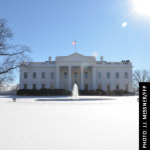
More than any previous year, the 2018 Fragile States Index (FSI) has demonstrated that rich and developed countries can be just as prone as any other to the effects of fragility and instability – and the United States is certainly no exception. A combination of political and social turmoil, coupled with severe natural disasters, gave cause for a deeply challenging year in the United States. All this despite a strong economy, underpinned by a robust stock market and record-low unemployment, demonstrating clearly that a country’s economic performance cannot be taken as a sole indicator of success.
Catalan Divorce Proceedings Fuel Spanish Division and Instability
- Thursday, 19 April 2018 07:01

October 1, 2017 marked the beginning of an intense social, political and constitutional crisis in Spain as Catalonia, a semi-autonomous region in the northeast of Spain, attempted to secede from the rest of the country through a controversial referendum. The situation spiraled into chaos as the Spanish government first declared the referendum illegal while the separatist regional administration in Barcelona moved forward with the process anyway. The vote resulted in an overwhelming victory for the separatists only to be dismissed by the government in Madrid and the separatist leadership charged with sedition and its leader fleeing to Belgium.